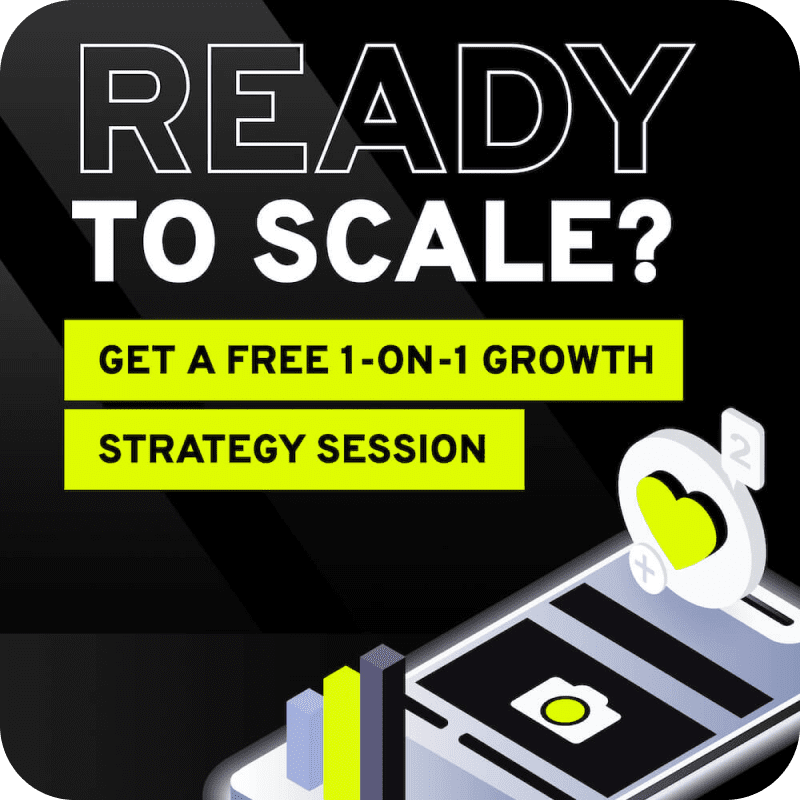PPC (Pay-Per-Click) advertising has become an essential marketing strategy for businesses seeking to maximize their online presence. As the digital landscape continues to evolve, staying ahead of the competition requires constant optimization of PPC campaigns. However, the manual process of analyzing and adjusting campaigns can be time-consuming and resource-intensive. This is where PPC automation comes into play. By harnessing the power of automation and artificial intelligence (AI), businesses can streamline their PPC processes and achieve faster campaign optimization.
Understanding the Basics of PPC Automation
PPC automation refers to the use of software and tools to automate various aspects of managing PPC campaigns. It involves setting up predefined rules or algorithms that automatically make adjustments to bids, keywords, ad copy, and other campaign elements. The goal is to optimize campaign performance while reducing the manual effort required.
PPC automation is a powerful tool that has revolutionized the way advertisers manage their pay-per-click campaigns. With the advent of sophisticated software and algorithms, advertisers can now streamline their campaign management process and achieve better results with less effort.
One of the key aspects of PPC automation is the ability to set up predefined rules. These rules act as a guide for the software, telling it how to make adjustments to the campaign based on certain conditions. For example, an advertiser can set a rule to increase the bid for a specific keyword if the ad position falls below a certain threshold. This ensures that the campaign remains competitive and maximizes the chances of getting clicks and conversions.
What is PPC Automation?
PPC automation is a systematic approach to optimizing PPC campaigns by leveraging technology and predefined rules. It enables advertisers to automate tasks that would otherwise require manual intervention, such as bid adjustments and ad scheduling. By automating repetitive tasks, advertisers can focus their efforts on strategic planning and analysis.
Automation has become an essential tool for advertisers looking to stay ahead in the competitive world of online advertising. With the ever-increasing complexity of PPC campaigns, manual management can be time-consuming and prone to errors. PPC automation provides a solution by automating routine tasks and allowing advertisers to focus on higher-level strategies.
One of the key benefits of PPC automation is the ability to make real-time adjustments to campaigns. With manual management, it can take time to analyze data and make necessary changes. However, with automation, advertisers can set up rules that trigger adjustments based on real-time data. This ensures that campaigns are always optimized and responsive to changing market conditions.
The Importance of PPC Automation in Campaign Optimization
Effective campaign optimization is crucial for achieving desired results from PPC advertising. Automation plays a pivotal role in this process by providing several key benefits. Firstly, it helps advertisers save time and effort by automating repetitive tasks, allowing them to allocate resources to more strategic activities. Secondly, automation ensures timely adjustments to campaigns, enabling advertisers to react quickly to changing market dynamics. Lastly, automation helps minimize human errors that can occur during manual optimization, resulting in more accurate and consistent campaign performance.
Automation also allows advertisers to scale their campaigns more effectively. With manual management, it can be challenging to handle large volumes of data and make adjustments in a timely manner. However, with automation, advertisers can easily manage multiple campaigns and make adjustments at scale. This allows them to reach a larger audience and maximize the impact of their advertising efforts.
Furthermore, PPC automation provides valuable insights and data that can be used to inform future campaign strategies. By analyzing the performance data generated by automated campaigns, advertisers can gain valuable insights into customer behavior, keyword performance, and ad copy effectiveness. This data can then be used to refine and optimize future campaigns, ensuring continuous improvement and better results over time.
In conclusion, PPC automation is a game-changer in the world of online advertising. It allows advertisers to streamline their campaign management process, save time and effort, and achieve better results. By leveraging technology and predefined rules, advertisers can optimize their campaigns, react quickly to market changes, and minimize human errors. With the ability to scale campaigns and gain valuable insights, PPC automation is an essential tool for advertisers looking to stay ahead in the competitive landscape of online advertising.
The Role of Artificial Intelligence in PPC Automation
Artificial Intelligence (AI) is the driving force behind PPC automation. It enables machines to analyze data, identify patterns, and make data-driven decisions, ultimately enhancing campaign performance. AI-powered automation algorithms can process enormous amounts of data and adjust campaigns in real-time, maximizing the effectiveness of PPC advertising.
But what exactly is AI and how does it work in the context of PPC automation? AI refers to the simulation of human intelligence in machines that are programmed to think and learn like humans. In the case of PPC automation, AI algorithms are designed to analyze vast amounts of data, such as user behavior, demographics, and historical campaign performance, to make informed decisions about targeting, bidding, and ad placement.
AI and Machine Learning: The Future of PPC
AI and machine learning technologies are revolutionizing the way PPC campaigns are managed. Machine learning algorithms can analyze historical campaign data, identify trends, and make predictions about future performance. This allows advertisers to optimize their campaigns proactively, rather than reactively. As AI continues to advance, we can expect even more sophisticated automation solutions that adapt in real-time to changing market conditions.
Machine learning, a subset of AI, involves the development of algorithms that can learn from and make predictions or decisions based on data. In the context of PPC automation, machine learning algorithms can continuously analyze campaign data and adjust targeting, bidding, and ad placement strategies to maximize performance. This iterative learning process enables advertisers to stay ahead of the competition and achieve better results.
How AI Enhances PPC Campaign Performance
AI-powered automation offers several benefits that traditional manual optimization methods cannot match. Firstly, AI algorithms can analyze vast amounts of data quickly, allowing for more precise targeting, bidding, and ad placement decisions. This results in improved campaign performance and higher conversion rates.
Imagine having to manually analyze thousands of data points to identify the best keywords, target audience, and bidding strategies for your PPC campaign. It would be a time-consuming and error-prone process. With AI, this analysis can be done in a fraction of the time, freeing up marketers to focus on other strategic tasks.
Secondly, AI can identify relevant keyword opportunities and recommend adjustments to maximize campaign ROI. By analyzing search trends, user behavior, and competitor data, AI algorithms can suggest new keywords to target or bid adjustments to improve ad visibility and click-through rates.
Lastly, AI can monitor campaign performance and detect anomalies, alerting advertisers to potential issues before they impact results. For example, if a sudden drop in click-through rates is detected, AI algorithms can automatically adjust bidding strategies or pause underperforming ads to prevent further loss of budget.
In conclusion, AI is a game-changer in PPC automation. It enables advertisers to leverage vast amounts of data, make data-driven decisions, and optimize campaigns in real-time. As AI and machine learning technologies continue to advance, we can expect even more powerful automation solutions that revolutionize the way PPC campaigns are managed.
Setting Up Automated PPC Rules
Setting up automated PPC rules involves defining the conditions and actions that the automation software should follow. By automating your campaigns, you can save time and optimize your advertising efforts. Here are some essential PPC rules to consider when automating your campaigns:
Essential PPC Rules for Automation
- Bid Adjustments: Automatically adjust bids based on factors such as time of day, device type, or location to optimize ad placement and budget allocation. For example, you can increase bids during peak hours to ensure your ads appear prominently when your target audience is most active.
- Ad Copy Rotations: Rotate multiple ad copies automatically to determine which variations perform the best. This allows you to test different messaging and creative elements to find the most effective combination.
- Keyword Bid Monitoring: Monitor keyword performance and adjust bids accordingly to maximize ROI. By analyzing data on keyword performance, you can identify high-performing keywords and allocate more budget towards them, while reducing bids on underperforming keywords.
- Ad Schedule Optimization: Automatically adjust ad scheduling based on historical data to target peak performance periods. For instance, if your data shows that your ads perform better during weekends, you can increase your bids during those days to capture more potential customers.
Steps to Implement PPC Automation
Implementing PPC automation requires careful planning and execution. Here are the steps to follow:
- Evaluate Campaign Performance: Analyze your existing campaigns and identify areas that can benefit from automation. Look for patterns in data that indicate where automation can help improve efficiency and effectiveness.
- Define Automation Goals: Set clear objectives for automation, such as reducing manual efforts, improving conversion rates, or increasing ROI. Having specific goals in mind will help guide your automation strategy.
- Select Automation Software: Choose a reliable automation tool that aligns with your goals and supports the necessary features. There are various automation platforms available, so take the time to research and select the one that best fits your needs.
- Set Up Automation Rules: Define the conditions and actions for automation based on your campaign requirements. This involves setting up rules that trigger specific actions, such as bid adjustments or ad copy rotations, based on predefined conditions.
- Monitor and Optimize: Continuously monitor campaign performance and make adjustments to automation rules as needed. Regularly reviewing your automated PPC campaigns will help you identify areas for improvement and ensure that your automation rules are effectively driving results.
By following these steps and implementing the essential PPC rules for automation, you can streamline your PPC campaigns and improve their overall performance. Remember to regularly review and optimize your automation rules to stay ahead of the competition and maximize your advertising ROI.
Benefits of Automating PPC Rules
Automating PPC rules offers numerous benefits that can significantly improve campaign performance and efficiency.
Increased Efficiency in Campaign Management
Automating repetitive tasks frees up time and resources, allowing advertisers to focus on strategic planning and analysis. By streamlining campaign management, businesses can achieve more with less effort, ultimately driving better results.
Improved ROI from PPC Campaigns
Automation helps optimize bids, keywords, and ad placements to maximize ROI. By leveraging data-driven decisions, advertisers can allocate their budget more effectively and achieve better returns from their PPC campaigns.
Potential Challenges in PPC Automation
While PPC automation offers significant advantages, it is not without its challenges. As advertisers delve into the world of automation, they may come across certain obstacles that need to be addressed.
Common Pitfalls in Automating PPC Rules
One common pitfall is relying too heavily on automated rules without considering the overall campaign strategy. Automation should be complemented by human analysis and decision-making to ensure that the campaign aligns with broader marketing goals.
Overcoming Obstacles in PPC Automation
To overcome challenges in PPC automation, it is essential to strike a balance between automation and human oversight. Regular monitoring and tweaking of automated rules, coupled with strategic analyses, can help optimize campaign performance and overcome potential obstacles.
In conclusion, automating PPC rules is a game-changer for campaign optimization. With AI-powered automation tools and predefined rules, businesses can save time, improve efficiency, and achieve better results from their PPC campaigns. By setting up automated rules and leveraging AI, advertisers can stay ahead of the competition and maximize the potential of their online advertising efforts. Embracing PPC automation is the key to faster campaign optimization and long-term success in the ever-evolving digital landscape.


